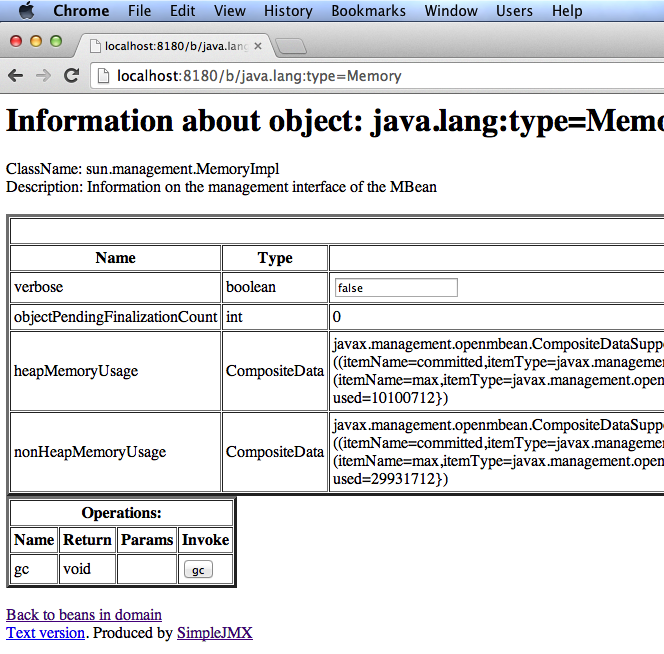
- Javadocs for the JmxWebServer
- Web server documentation from the manual.
SimpleJMX contains a simple web-server handler that uses Jetty so that you can access JMX information from a web browser or other web client using the JmxWebServer class. To use this class you need to provide a Jetty version in your dependency list or classpath. See the below example code:

There is a simple web server example program checked into source control. There is also a basic example program that shows how to use the annotations and publish beans to JMX using SimpleJMX.
To use the web-server you would do something like:// [[optionally]] create a new server listening on port 8000 // or you could just use the platform MBeanServer JmxServer jmxServer = new JmxServer(8000); // start the jmx server if necessary jmxServer.start(); // start a web server for exposing jmx beans listening on port 8080 JmxWebServer jmxWebServer = new JmxWebServer(8080); jmxWebServer.start(); // register some object(s) to be exposed with JMX jmxServer.register(someObj); jmxServer.register(someOtherObject); ... // now you can use your web browser to connect on port 8080 ... // stop the server jmxServer.stop(); // stop the web server jmxWebServer.stop();
Here's an image of some sample output as seen from a web browser. You can see that the HTML produced is very rudamentary.

Free Spam Protection Android ORM Simple Java Zip JMX using HTTP Great Eggnog Recipe Eero Model Comparison